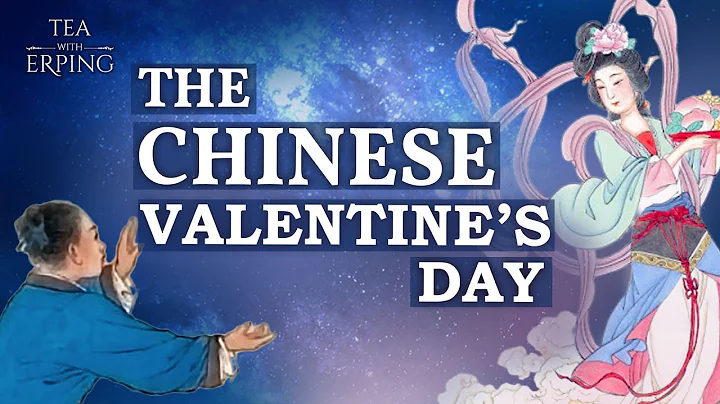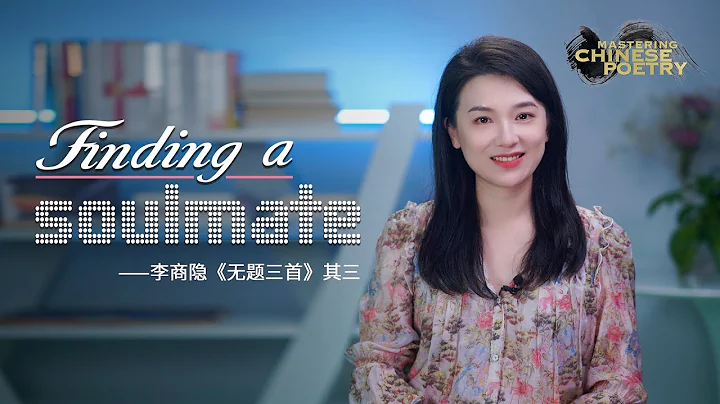The seventh day of the seventh month of the Chinese lunar calendar was originally called "Qiao Qiao Festival" and "Girl's Day". Now when it comes to the seventh day of July, the first thing we think of is "Chinese Valentine's Day". In fact, the Qixi Festival did not change in ancient times. It has the meaning of "Valentine's Day", but a festival from the stars. Vega is in the north of the galaxy and Altair is in the south of the galaxy. The two stars face each other across the galaxy. The distance between the two stars is the closest on the seventh day of July. Therefore, the ancients thought of this: On the night of July 7th, a magpie will bridge the bridge to meet the couple who have been separated all year round.
In the ancient Qixi Festival, more emphasis was placed on "begging for cleverness". Since it is seeking "smartness", the "needles" used by female celebrities will naturally become the protagonists of "begging for cleverness". The girls who have not come out of the pavilion compete by "piercing needles and begging for cleverness" to express their yearning for clever hands. "Piercing needles and begging for cleverness" requires girls to pierce needles under the bright moonlight. Whoever crosses them first gets the title of "smart". Threading needles under moonlight requires not only good eyesight, but also skilled embroidery skills.

Speaking of Tanabata, one must mention the Cowherd and Weaver Girl Magpie Bridge meeting. Due to the homophony of "Qi" and "Ji", there are two "sevens" on the seventh day of July, with double Auspicious meaning, is a very lucky day. That night, the young girls would come together under the moon in front of the flowers and look up at the starry sky. In the vast sky, a Milky Way runs through the night sky. Among the twinkling stars, the brightest one is Vega. On the opposite side of the Milky Way, to the south of Vega The big, two and three bright stars are lined up. Legend has it that the brightest of the three stars is Altair, and the two small stars are their son and daughter. Under such bright stars and bright moonlight, the young girls sincerely prayed to the Weaver Girl that they could meet happy love.
's family likes the culture of the Tang Dynasty very much. When it comes to Qixi, it is natural to talk about the story of Tang Xuanzong and Yang Guifei. According to the "Remains of Kaiyuan Tianbao": Every Chinese Valentine's Day festival, Emperor Xuanzong of Tang and his concubines have a night banquet at Huaqing Palace, drinking wine, tasting delicacies and spending Chinese Valentine's Day.

Saying that July 7th of this year has not passed the scorching heat, Tang Xuanzong brought Yang Guifei to Huaqing Palace to escape the summer heat, which was the Qixi Qixi Festival. The bright moon hung high in the night, and Concubine Yang suddenly covered her face and wept, very sad. Tang Xuanzong patiently persuaded him with little effect. After repeated questioning about the reason, it took a long time for Concubine Yang to say what was in her mind: "The concubine looks at the Cowherd and the Weaver Girl in the distance, and can't help but envy her husband and wife for a long time. The concubine fears that she will be inferior! How can we not hurt her feelings?”
Actually, what Yang Guifei worries about is not unreasonable. The imperial concubines, the time when people are old and yellow is the day of decay and love, and they will be ruthlessly abandoned. Concubine Yang's affection deeply moved Tang Xuanzong, so the couple vowed to each other in the starry night of July. Therefore, there is the scene described in Bai Juyi's "Eternal Sorrow" in "Eternal Life Hall on July 7th, when no one is whispering in the middle of the night. I wish to be a bird of love in the sky, and a branch in the earth". Later, this allusion spread to the folks, and the Qixi Festival gradually evolved into an important day to pray for a happy marriage.

The romantic moments are short and gorgeous, how can you leave those poems with beautiful artistic conception, please follow the footsteps of the family, and we will appreciate the description of the Chinese Valentine’s Day by the ancients. Verse:
"The Magpie Bridge Fairy"
秦观 The delicate clouds are clever, the flying stars spread hate, and the silver man is dark. When Jinfengyulu meets, it wins but countless people. Tenderness is like water, good time is like a dream, bear with me and return home from the bridge! If the two loves last for a long time, how can they be in the future?
Pin Reading: The story of the Cowherd and the Weaver Girl is well-known in China. It is a legend created by the ancient Chinese people based on celestial phenomena. It is also an important theme in love literature. From "The Book of Songs" to "Han Yuefu", many scholars and writers have written This subject. The first part of the poem "The Magpie Bridge Fairy" is about the meeting of the Cowherd and the Weaver Girl, and the second part is about their separation. With beautiful artistic conception and sincere feelings, it is a Qixi poem that Zhijia likes very much.
The poem begins with a description of the external environment. The thin clouds are unpredictable in the sky, the meteors in the sky convey the resentment of lovesickness, and the vast and boundless galaxy is where the meteors gallop; the second sentence "When the golden wind and jade dew meet, they Victory but there are countless people in the world" writes euphemistically: Two people who know each other and promise to get together are better than those couples who stay together in the ordinary world, but seem to be separated.
The third sentence "Tenderness is like water, good times are like dreams, bear with the magpie bridge and return home!" It is written: short gatherings are like dreams, and I can't bear to look back at the Magpie Bridge Road that I walked through when we parted. The last sentence "If the two loves last for a long time, how can they be in the day and night!" It transcends the limitations of time, space, and the world, and fully describes the beautiful and pure emotions that people have dreamed of from ancient times to the present, and at the same time expresses the oath: as long as With each other in my heart, how can I stay together all the time. This line of poem sublimates love, and finally becomes a famous line through the ages!

"Autumn Festival"
杜牧Silver candle autumn light cold painting screen, Qing Luo small fan fluttering. The sky is as cool as water at night, lying down and watching the star of Morning Glory and Vega.
Pin Reading: This poem is about the Qixi Festival, the sad mood of a disappointed palace lady. The first two sentences of the poem describe the scene of daily life in the palace: in the autumn night, candles emit a faint light, shining on the cold calligraphy and painting of the screen, and at this time a palace lady is holding a fan and beating the flying fireflies and sending them away. Lonely and boring days. Zhijia believes that beating fireflies implies driving away loneliness. Fans are generally used more frequently in midsummer. Fans in autumn are basically not used. Luo Fan hints that this palace lady has been forgotten and fell out of favor in the deep palace for a long time.
The phrase "the night is as cool as water on the sky" indicates that the night is deep and the chill is chilling. The stone steps of the palace are even more icy. Everyone else in the palace has rested. Only this maid is still sitting on the steps and looking up. The Cowherd and Vega on both sides of the Milky Way, Zhijia realized her hope for true love and sadness for her destiny at this moment. This poem describes the state of mind that is intertwined with sadness and expectation, allowing readers to experience the sincerity and helplessness.

"Chinese Valentine's Day"
白居易The sky is the same in the autumn of Yinhan. Ji Xu's love and hatred, every year and in this night.
Pin Reading: This poem starts with the description of the scenery. The crescent moon is hung in the cold night sky. It is also the natural environment background for the meeting of the Cowherd and the Weaver Girl on July 7. Describing scenes means writing emotions, which exaggerates the mood of the characters. In the second sentence of "Yinhan Qiuqi Wangutong", "Yinhan" refers to both sides of the Milky Way, "Autumn Period" refers to the Qixi Festival, and "Eternal Ages" refers to the eternal state of the stars in the Milky Way. This poem invisibly renders a quiet and desolate mood. The Cowherd and the Weaver Girl, who live on both sides of the Milky Way, can only hide their emotions and look at each other across the Milky Way.
The last two sentences "A lot of love and hatred, year after year and in this night." describes the Cowherd and the Weaver Girl after waiting for a year, and finally meets the emotional state in her heart, and her heart is endless. Then, the endless lovesickness is in it, and Zhijia seems to feel the time they cherish in their hearts to gather every minute and every second, and seize the time to talk to each other and stay tenderly.
The Qixi Festival is coming soon, today's home will take you to appreciate these three ancient poems describing the Qixi Festival, I wish you all a happy Qixi Festival!











![Let us foresee the future of the constellation together! Click [Follow] Aries's fortune tomorrow 2022/10/31 Today's short comment: Be grateful and you can get good luck. - DayDayNews](https://cdn.daydaynews.cc/wp-content/themes/begin/img/loading.gif)









